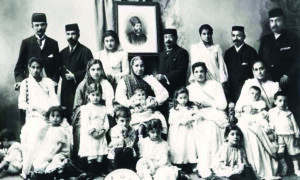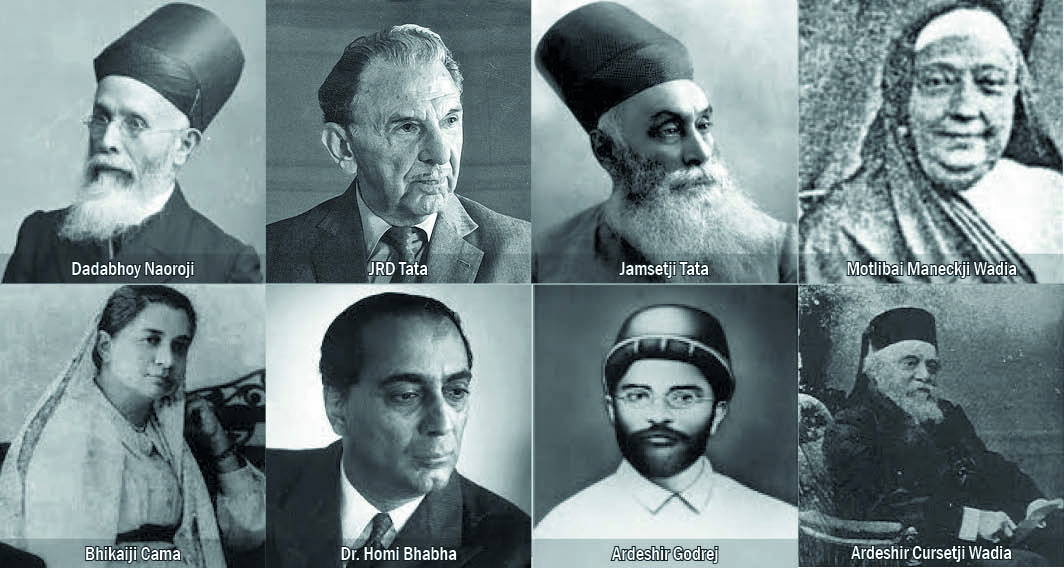Parsi Times presents a 5-part series on the entry, settlement and rise of the Parsi community in India, by Adil J. Govadia.
 Undoubtedly, no country in the world embraces such an extraordinary assortment of religions, ethnic groups, cultural practices and an extensive spectrum of incomprehensible dialects and vernaculars as India! Indeed, India is a unique country having an exceptional blend of spiritual unseen elsewhere worldwide – holding the largest population of Hindus, Sikhs and Jains in the world, while Buddhism, the fastest growing religion, has its holiest of holy stupas in India. Followers of Judaism, one of the oldest communities since the 12th century, reside in India, as do Christians. India is home to the world’s second largest concentration of Muslims! Is it any wonder then that the world’s largest concentration of Parsi-Zoroastrians is also found in India!
Undoubtedly, no country in the world embraces such an extraordinary assortment of religions, ethnic groups, cultural practices and an extensive spectrum of incomprehensible dialects and vernaculars as India! Indeed, India is a unique country having an exceptional blend of spiritual unseen elsewhere worldwide – holding the largest population of Hindus, Sikhs and Jains in the world, while Buddhism, the fastest growing religion, has its holiest of holy stupas in India. Followers of Judaism, one of the oldest communities since the 12th century, reside in India, as do Christians. India is home to the world’s second largest concentration of Muslims! Is it any wonder then that the world’s largest concentration of Parsi-Zoroastrians is also found in India!
So many religions of the world have flourished in India mainly because of the foundation of Universal principles of spirituality that exists in this great Nation. The established custom of Hindus to pay ‘homage to humanity’ includes genial warmth and affection towards all visitors – rich or poor, who visit their doorstep. The Parsi-Zoroastrian community remains forever indebted to the matchless warmth and welcoming culture of Hinduism.
One of the most heart-warming examples in the history of Hindu hospitality is the creation of ‘Little Poland’ in India, thanks to Jam Shaib Sri Digvijaysinhji Ranjitsinhji Jadeja, Maharaja of Jamnagar, who succeeded his uncle, the celebrated cricketer, Ranjitsinhji. Jam Sahib Sri Digvijaysinhji ruled his State during World War II, from 1933 to 1948, displaying genuine nobility of hospitality and graciousness.
During this most difficult period, against the backdrop of severe famine and drought, Poland was torn apart, its people were held captive in various concentration camps while innumerable Polish children were left orphans. Of the million Poles who escaped to various European ports and Central Asia, over 600 women and 200 children, escaped via sea reaching the port of Bombay, after being turned away from every country. At Bombay too the Polish refugees were refused entry by the then British Governor. But Maharaja Jam Shaib Sri Digvijaysinhji ordered the boat to dock at Rosi Port in his province, providing asylum. Thus began the story of ‘Little Poland’ in India much against the wishes of the British Government. The Maharaja provided good boarding and lodging facilities for the Polish refugees, as also a school and free education to the migrant children, for over nine years till the end of WW II.
Moving back to the history of Parsis and their early period of settlement in India, they were, by and large, engaged in various professions like Mobedi (priesthood), agro-farming, artistry, creativity, carpentry, trading, brokering, weaving etc. They, however shunned the profession of blacksmith and barber due to religious compulsions. During the 19th and 20th centuries, Parsis successfully progressed to trading with China or became educationists, ship-builders, industrialists, bankers, lawyers, scientists, politicians, physicians, surgeons and engineers.
Parsis also productively pursued theatre and films, served the Armed Forces diligently, having achieved distinction and honour in every war they fought, since the 1850s, both in India and abroad. Recognized as one of the most westernized of all communities in India, Parsi-Zoroastrians played a crucial role in the country’s development in all fields of endeavour, and have produced some of the most imposing and outstanding personalities in every sphere of professional life, be it:
- Commerce & Industry (Readymoneys, Banajis, Jeejeebhoys, Petits, Camas, Navrojis, Adenwallas & Wadias, Dubashes, Tatas, Godrejs and Guzders to name a few)
- Politics (Sir Pherozeshah Mehta, Dadabhai Naoroji, Sir Mancherjee Bhownagree, Minoo Masani, Piloo Mody, Bhicaji Cama, Feroze Gandhi, Homi Taleyarkhan and many more)
- Science, Research & Technology (Homi Bhabha, Russi Taleyarkhan, Homi Sethna, Ervad Dr Minocher Karkhanawala and the likes),
- Legal luminaries (Sir Dinshah Mulla, Jamshedji Kanga, Sorab Kotwal, Nani Palkhiwalla, Hormasji Seervai, Tehmton Andhyarujina, Justice Sarosh Kapadia, Sam Bharucha, Soli Sorabji, Fali Nariman, Ervad Justice Rohinton Nariman, Justice Jamshed Pardiwala and many more),
- Music (Zubin Mehta, Coomi Wadia, Zarine Mehta, Penaz Masani, Neville Zarir Bharucha, Freddie Balsara-Mercury and the likes),
- Armed Forces (Field Marshal Sam Manekshaw, Air Marshal Aspy Engineer, Admiral Jal Cursetji, Air Marshal Fali Major and several more),
- Sports (Dr. Meherwan ‘Mehllasa’ Pavri, Dolly Nazir, Ardeshir ‘Bobby’ Taleyarkhan, Polly Umrigar, Nari Contractor, Rusi Surti, Farrokh Engineer, Rusi Mody, Aadil Sumariwalla, Zenia Ayrton, Rehan Poncha, Pilloo Reporter etc),
- Medicine (several doctors of repute like Dr. Sir Tehmulji Nariman, Dr. Kaikhasru Bahadurji, Dr. Farokh and Dr. Tehmton Udwadia, Dr. Phiroze Soonawala, Dr. Dinshaw Pardiwala, Dr. Hirji S. Adenwalla, and many more)
- Art (Hormazd Narielwalla, Jehangir Sabavala, painter Karl K. Siganporewalla, architect & sculptor Shirin Darasha etc)
- Films & Theatre (likes of Sohrab Mody, the Wadia brothers – Jamshed & Homi Wadia, Manchershah Billimoria, Nadir & Burjor Mancherji Tata, Adi Marzban, Dinyar Contractor, Boman Irani, Frenny Variava, Ronnie Screwvalla, Shiamak Davar, Yazdi Karanjia, etc)
- Global Cyclists (like Jal Bapasola, Adi Hakim, Gustad Hathiram, Rustom Bhumgara, Keki Kharas, Ratan Shroff, Rustom Gandhi etc)
- Mystics (like Azar Kaivan, Dasturji Kukadaru, Behramshah Shroff, Merwan Sheriar Irani who later became popular as Meher Baba, Ervad Nadirshah Aibara, Behramshah Pithawala, and so on)
Undoubtedly, Parsis have elevated the dignity and distinction of Indians around the world despite their microscopic numbers. Parsis have indeed played a disproportionately large role in not only building independent India but more so the cities of Bombay, Surat, Poona, Karachi etc. Their adaptability and harmonious relationship with every major community in India is noteworthy. Nor have they ever demanded for special status, privileges or favours as they have always been able to display their high standards of qualities and virtues which, in turn, have enabled them to secure positions of eminence in some of the highest public offices across India.
- સોરાબજી બરજોરજી ગાર્ડા કોલેજ ટ્રસ્ટ, નવસારી - 8 February2025
- અજમલગઢ ખાતે ઐતિહાસિક જશન યોજાશે - 8 February2025
- સાહેર અગિયારીએ 179મા સાલગ્રેહનીભવ્ય રીતે ઉજવણી કરી - 8 February2025
